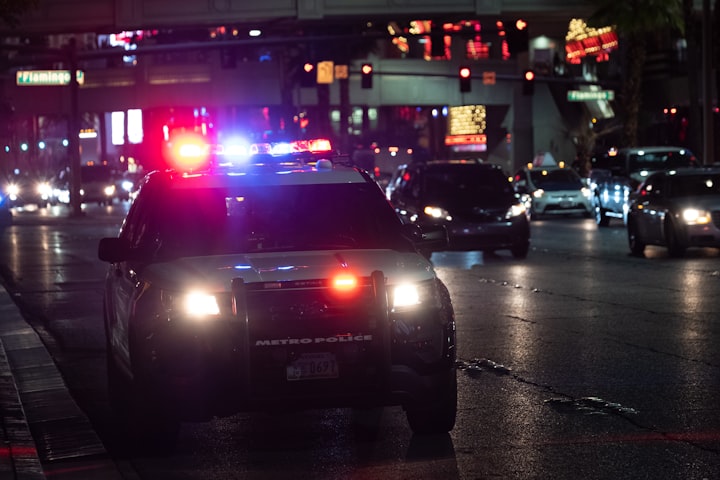Police Dont Buy Into Victim Mentality
Victim Mentality Doesn't Help You at All

In a recent viral video making rounds on social media, a remarkable interaction between a police officer and a young woman he pulled over has captivated viewers. The video, sourced from the officer's body cam, showcases a scenario that vividly illustrates the impact of modern societal attitudes, specifically the so-called "woke" and victim mentalities, on real-life situations.
The footage begins with the officer approaching a woman who had been driving in the wrong direction on an exit ramp, leading to a potentially dangerous situation with oncoming traffic. Throughout the interaction, the woman attempts to invoke various aspects of her identity, including claiming to be indigenous and nonbinary, in what appears to be an effort to deflect responsibility for her actions. She also mentions suffering from social anxiety, PTSD, and other mental health issues, further complicating the discourse.
Despite the woman's numerous excuses and at times, outright absurd claims, the officer remains remarkably patient, kind, and level-headed. His demeanor in dealing with the situation not only highlights the professionalism and compassion exhibited by law enforcement officers but also underscores the challenges they face in navigating the complex landscape of modern societal expectations and individual behaviors.
The video serves as a poignant commentary on the current state of societal norms, where victimhood and entitlement are increasingly used as shields against personal accountability. The woman's behavior exemplifies a broader trend where individuals may leverage their identity or perceived societal injustices to excuse or justify inappropriate or unlawful behavior. This not only undermines genuine instances of discrimination and hardship but also poses a significant challenge to the principles of fairness and responsibility that underpin social cohesion and justice.
Moreover, the officer's response to the situation sheds light on the importance of maintaining professionalism and empathy in the face of provocation or manipulation. His ability to manage the interaction without compromising his duty or the woman's dignity, despite her attempts to use her identity as a bargaining chip, is commendable. It reflects a level of restraint and understanding that is crucial in law enforcement and in broader societal interactions, where quick judgment or escalation could easily exacerbate tensions.
The incident captured in the video also opens a window into the broader debate about identity politics, the role of law enforcement, and the societal values that shape our understanding of justice and personal responsibility. It prompts a reflection on the balance between acknowledging and respecting individual identities and experiences while also ensuring that these factors do not become tools for avoiding the consequences of one's actions.
As the video continues to circulate and spark discussions, it serves as a reminder of the complexities of modern life, where the lines between identity, responsibility, and societal expectations are increasingly blurred. It challenges viewers to consider the implications of their attitudes and behaviors, not just for themselves but for the fabric of society as a whole. In a world where identity and victimhood can be wielded as weapons or shields, the need for empathy, understanding, and, above all, personal accountability has never been more critical.
The widespread reaction to the video also highlights a collective yearning for a return to a culture where personal accountability is valued over the exploitation of identity for personal gain. This incident, while isolated, mirrors a larger societal conversation about the consequences of a culture that, at times, incentivizes victimhood over resilience and accountability. It raises critical questions about how societal norms and values evolve in response to changing attitudes towards identity, oppression, and responsibility.
Furthermore, the video's virality underscores the power of social media as a double-edged sword in shaping public discourse. On one hand, it facilitates a broader dialogue on important issues, allowing for diverse perspectives to be shared and heard. On the other, it can amplify extreme viewpoints or situations, sometimes distorting the reality of more nuanced everyday interactions. The balance between recognizing and addressing legitimate grievances and fostering a culture that encourages resilience and personal growth is delicate and requires thoughtful navigation.
In essence, this incident serves as a microcosm of the larger challenges facing society today. It calls for a nuanced approach to issues of identity and accountability, urging a move towards a more balanced perspective that honors both individual experiences and the collective need for a just and responsible society.
About the Creator
Lawrence Lease
Alaska born and bred, Washington DC is my home. I'm also a freelance writer. Love politics and history.






Comments
There are no comments for this story
Be the first to respond and start the conversation.